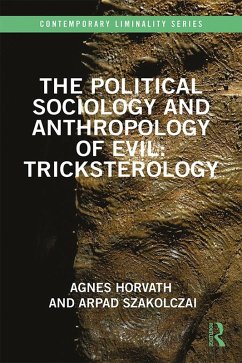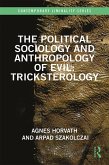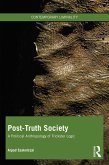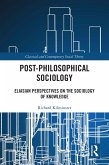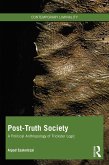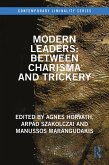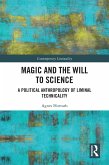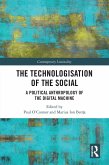After engaging with the trickster as presented in comparative anthropology and mythology, where it appears in tales and legends as a strange, erratic outsider, the authors seek to gain an inside perspective of trickster knowledge through an examination of mythology and the classical world, including both philosophers and poets. The book then goes on to trace the trickster through prehistory, using archaeological evidence to complement the diverse narratives. In this way, and by investigating the knowledge and customs surrounding evil, the authors use the figure of the trickster to provide an unprecedented diagnosis of the contemporary world, where external, mechanical rationality has become taken for granted and even considered as foundational in politics, economics, and technologised science. The authors advance the idea that the modern world, with its global free markets, mass mediatic democracy and technologised science, represents a universalisation of trickster logic. The Political Sociology and Anthropology of the Evil will be of interest to scholars working in the fields of social theory, political anthropology and political sociology, as well as those interested in the ways in which evil can infiltrate reality.
Dieser Download kann aus rechtlichen Gründen nur mit Rechnungsadresse in A, B, BG, CY, CZ, D, DK, EW, E, FIN, F, GR, HR, H, IRL, I, LT, L, LR, M, NL, PL, P, R, S, SLO, SK ausgeliefert werden.
"A complex and timely meditation on the nature of evil in human societies, reaching back into the distant past - while not all will agree with its methods or conclusions, this book offers provocative ideas for consideration by anthropologists, philosophers, and culture historians." - David Wengrow, Professor of Comparative Archaeology, University College London, UK
"This book offers an original and thought-provoking engagement with a problem for which we still lack adequate perspectives: the disastrous experience of advanced modernity with what we can provisionally call demonic power." - Johann Arnason, Emeritus Professor of Sociology, La Trobe University, Australia
"Horvath and Szakolczai provide a remarkable service in bringing the neglected figure of the trickster into the spotlight. This is a book to be recommended and savoured as a fillip to the sociological imagination today." - Chris Rojek, Professor of Sociology, City University of London, UK

